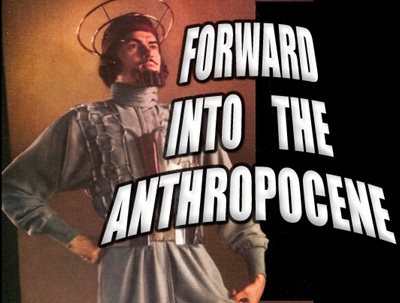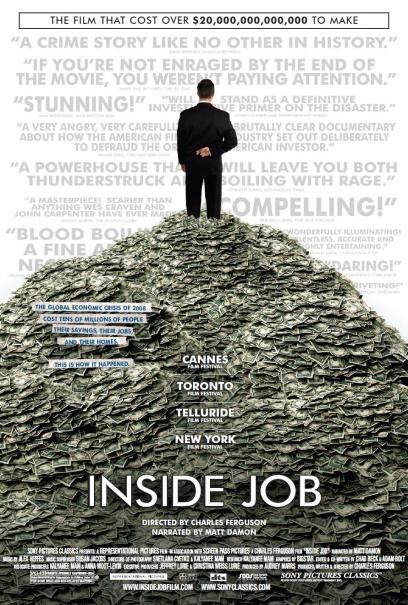28 February 2011
Into the Anthropocene

I love reading the Times as much as I thoroughly enjoy National Public Radio and the coverage of the BBC that lurches me into the flurry of the working week. Before we go there, I want to say goodbye to a friend I never met.
Corporal Frank Buckles, USA, was a comrade of my grandfather and the last living veteran of the Great War. He was 110 when he passed as the last man in the long line of millions at his home in West Virginia. Rest in Peace.
A night of semi-delirium helps to wonderfully unfocus the mind. The dreams were vivid and clearly segmented by the periods of alternating chills and sweats, part of the epochal development of the current virus that my immune system thankfully appears to beating back.
The Beeb was muttering in the background in the night about the chaos in Libya and the myriad of down-stream consequences. Some commentators seemed to suggest that the wave of uprising against the repressive regimes across the former Caliphate is a net rebuke to the West.
Others say it is a rejection of the terror of McQaida’s franchise terror and an embrace of democracy. Others are darker, murmuring it is going to be more like what came after the fall of the Wall: democracy returned to places that had known what it was, and kleptocracies replaced Communism in places that didn't.
I dreamt of bombs and bad guys in between, no doubt connected to a fevered viewing of the Oscar-winning film “The Hurt Locker.” The DVD has been rebuking me from the pile of movies I should have got to long before the current crop of Hollywood films got the chance to do their turn on the Oscar stage.
At some point in the night, I was floating in another age so profoundly weird, so totally unexpected, that had I not been utterly professionally and caffeine-focused on the disintegration the Soviet Empire, it would have seemed as dreamlike as the fever.
That was the end of an historical era; though the months in which the end progressed seemed long enough in real time, there is a place to draw a dark line in the historic record that can only be seen looking backward.
In our social times, it is difficult to separate the weather from the climate, something we always forget with some demonstration of Mother Earth’s power.
I could not help but be on the correct and somewhat fuzzy frequency to accept what the Times advanced this morning, which was a bold proposal that we should be prepared to adopt a new geologic epoch to account for the impact of humans on the planet.
By way of context, we are currently renting a place in what they call the Holocene period, which commenced, in retrospect, about twelve thousand years ago. The preceding epoch, the Pleistocene, ended a period of dramatic glaciation and expanding and contracting sheets of ice across the face of the globe.
Best as anyone can tell, that epoch went on for the best part of three million years. The Holocene, characterized by generally warmer temperatures, is derived from the Greek words meaning "entirely recent.” It contains all the significant activities of our species beyond wandering around, hunting, gathering and fornicating. It is considered an inter-glacial period in the classical analysis, which implies that at some point, smart people considered the return of the glaciers to be likely.
It has only been 12,000 years, after all.
The probably inadvertent, but entirely beneficent invention of beer is part of the great agricultural revolution half-way through the Holocene, and is said by some to be responsible for humanity's ability to develop technology and build civilization with the concomitant capability to take them apart even quicker.
Anyway, the Times is onboard with renaming the Holocene to something called the Anthropcene. The editorial writers lift the term from an offhand comment made by Nobel Laureate Paul Crutzen, one of the early proponents of Warmism. A formal proposal was made at the 2008 Stratigraphy Commission meeting of the Geological Society of London. Many learned folks nodded and thought the idea had merit, since the onset of the Industrial Revolution has left changes to the stratigraphy of the world, in its sediments and ice that are measurable and real.
What you can measure is obviously significant, but it is troublesome to build models on what the consequences of measurable things may have on a large and complex system of a spinning orbiting mass of gigantic proportions, irradiated by an external sphere of continuing nuclear detonations.
I think it would be useful to understand why the glaciers came, and whether or not the Trilobites of the fossil record had anything to do with it.
For the record, I am opposed to the change in the biomass of this lovely world, and would prefer to have the diversity and vibrancy of say- Corporal Buckles age, or Bob Hope. Both their lives went more than half-way to the start of the Anthropogenic Epoch.
Of course, that is what makes this as political and it is scientific. I am prepared to take arguments that make sense. We should stop slaughtering our fellow species. Even in shallow self-interest, we may need them sometime.
Because the Industrial Revolution is so recent, it is hard to make direct, rather than inferred, connections between the clearly human induced and massive extinction of species. It just seems to a lot of folks to be a natural connection to associate it with climate change.
In order to bolster the case, some more radical proponents want to push back the start of the Anthropogenic Epoch to the beginning of the Agricultural Age, or the beginning of beer.
That was disquieting enough a thought that I went to the kitchen to make a cold tonic and returned to my brown chair in time and alert enough for the Oscar show to see the ghost of Bob Hope, the iconic host of the show for years and years float, in a holograph above the stage, his voice recreated digitally to announce the awardees for some category, I forget what.
I was on the way back from the kitchen again when the award for the best documentary was announced. I was afraid it was going to go to Banksy, the noted Graffiti Bandit and prophet of the new disorder.
Instead, I was surprised to see it went to the only really worth watching this year.
Director Charles Ferguson came to the stage to accept for his film “Inside Job,” the devastating account of the mass fraud that plunged this nation, and the world, into the crapper.
He didn’t fawn on the Academy, or thank the people who live him. He said this, the most honest thing any person or holograph said all night:
“Forgive me, I must start by pointing out that three years after a horrific financial crisis caused by massive fraud, not a single financial executive has gone to jail and that's wrong.”
He did manage to thank the Academy in the spare five sentences that followed, but that sums it up.
We are in new territory now. The future will have to give this a name, since I cannot discern between the weather of human events and the consistency of greed and the change of the heavens.
At the moment, it is just something we are going to have to live with as “Now.”

Copyright 2011 Vic Socotra
vicsocotra.com | Subscribe to the RSS feed!